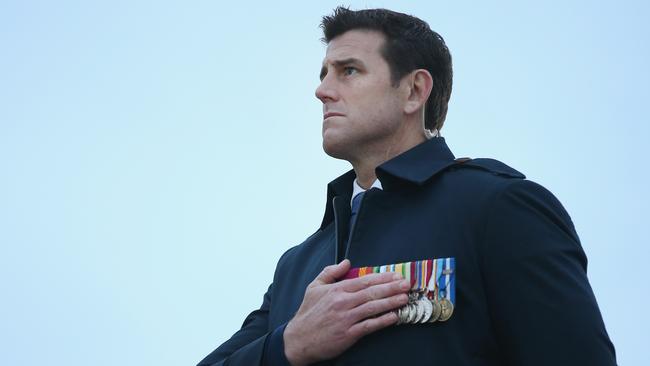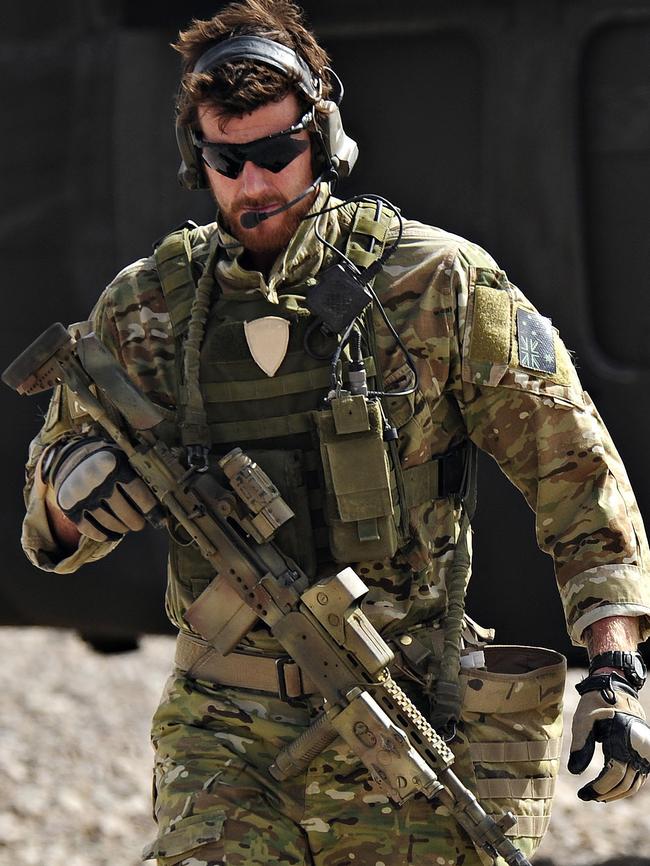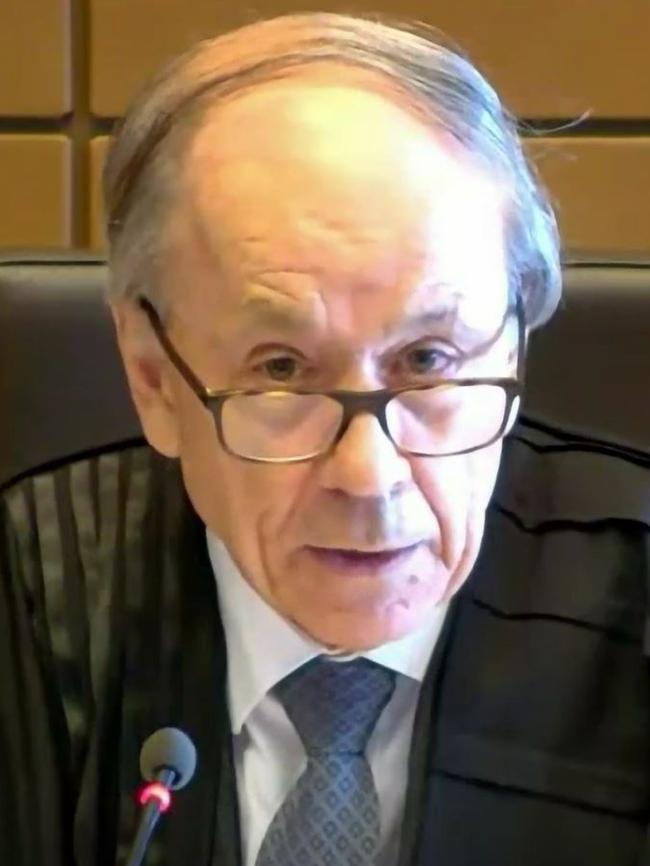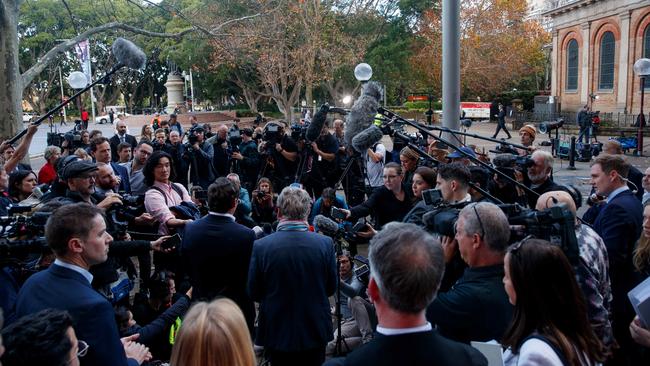Ben Roberts-Smith loses defamation case, vows to appeal
Australia’s most decorated war hero Ben Roberts-Smith has vowed to appeal the outcome of his defamation trial, after a judge ruled he murdered innocent civilians in Afghanistan.
Police & Courts
Don't miss out on the headlines from Police & Courts. Followed categories will be added to My News.
Australia’s most decorated war hero Ben Roberts-Smith will appeal against a civil court judgment that found he murdered innocent civilians in Afghanistan.
A bombshell end to his defamation action against three newspapers found the allegations made against him, including that he kicked a handcuffed man over a cliff and machine-gunned a prisoner with a prosthetic leg, were substantially true.
Outside the Federal Court in front of a massive media scrum, Nine’s journalists celebrated a “day of justice” for the SAS soldiers who spoke out against Mr Roberts-Smith at the hearing.
Nine’s managing director of publishing James Chessell said the result was a “vindication” for journalism, and vowed to carry on its investigations.
“We will continue to hold people involved in war crimes to account,” he said.

Mr Roberts-Smith’s lawyer Arthur Moses SC requested an extension of time from 28 to 42 days to study the full written judgment when it is published. A Seven source said it expected to appeal against the judgment.
After hearing 110 days of evidence from 41 witnesses and considering hundreds of exhibits and thousands of pages of transcripts, Justice Anthony Besanko on Thursday delivered his judgment in the long-running litigation, ultimately dismissing the defamation action brought by Mr Roberts-Smith against The Sydney Morning Herald, The Age and The Canberra Times.


Justice Besanko found Nine newspapers had proven that Mr Roberts-Smith was a war criminal involved in the murder of unarmed Afghan prisoners while deployed in the war zone between 2009 and 2012.
Arguably the most sensational allegation contained in the series of six articles published by The Sydney Morning Herald, The Age and The Canberra Times in 2018 was that Mr Roberts-Smith kicked a detained and handcuffed shepherd named Ali Jan off a cliff in the village of Darwan in September 2012 then watched as another soldier shot him dead in a nearby field.
Mr Roberts-Smith and the second soldier denied the allegations, claiming the man was an insurgent spotter, however Justice Besanko found the outlets had proven the allegations to be “substantially true”.

The papers also published details of another incident four years earlier in which it was claimed Mr Roberts-Smith was involved in the execution of a disabled man in a Taliban compound, codenamed Whiskey 108, in Uruzgan province.
Mr Roberts-Smith claimed the man he shot, who was later found to have a prosthetic leg, had been running at him carrying a weapon. The newspapers relied on evidence from other soldiers on the ground that the man was in fact unarmed and detained as a “person under control” when Mr Roberts-Smith shot him in an “exhibition execution”.
Justice Besanko found that claim had been proven by the newspapers.
He also found Mr Roberts-Smith had instructed a junior soldier to execute a second unarmed Afghan man from the same compound in order to “blood the rookie”.
The fourth allegation ruled as substantially true involved a claim that Mr Roberts-Smith ordered the execution of an Afghan PUC (person under control) after a weapons cache was found in the village of Chenartu in late 2012.
However, Justice Besanko also found multiple allegations published by the newspapers had not been substantiated by evidence presented in court.
Chief among them, and an allegation Mr Roberts-Smith conceded in his evidence was acutely hurtful, was that he had punched his ex-mistress in the face in an act of domestic violence following a function at Parliament House in Canberra in March 2018.
“I’m not satisfied (her) evidence is sufficiently reliable to establish the assault occurred and that (the imputations) are substantially true,” Justice Besanko said.
However, the publishers successfully defended those allegations arguing contextual truth.
Justice Besanko also found the papers had not established the substantial truth of two sets of allegations contained in the articles about Mr Roberts-Smith’s involvement in the killing of a detained Afghan man during a mission to Syachow in October 2012, the execution of a teen at Fasil in November 2012, and his bullying of a fellow soldier while on deployment.
Mr Roberts-Smith attended every one of the 110 days of the hearing but did not attend the judgment, choosing instead to go to Bali.
Legal expert Justin Quill estimated the full legal costs would “be in the region of $35m”.
The brunt of those are likely to be born by Mr Roberts-Smith, whose case has been underwritten by Seven boss Kerry Stokes.
Mr Roberts-Smith had offered his Victoria Cross as surety if he lost.
Mr Stokes has yet to speak to the VC recipient but said he was disappointed at the outcome of the trial.
“The judgment does not accord with the man I know,” Mr Stokes said.




